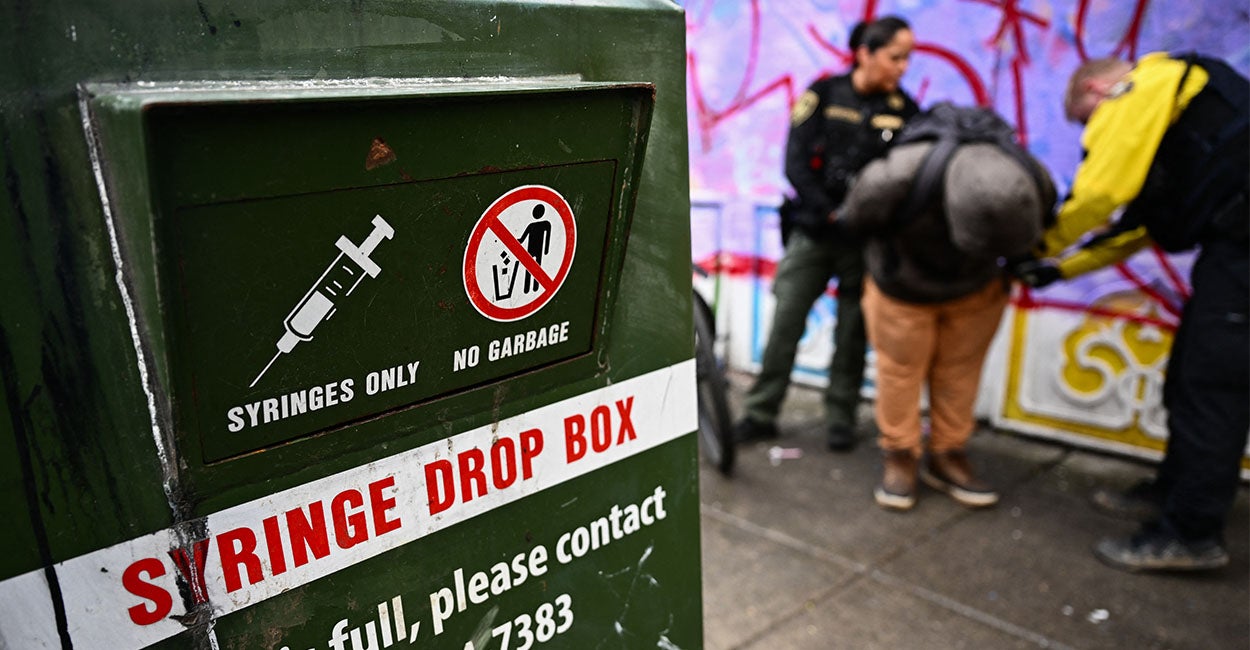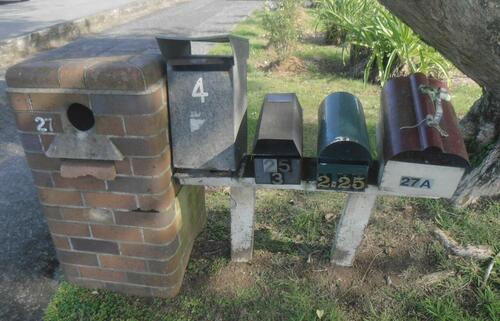Privacy Part 7: De-Googled and Dumb Phones
You know they can track your phone. What are your options?
LINKS:
Originally posted 2022-08-30 12:47:57.
Will Dove 00:14 I have with me once again, Oliver Ross of Liberty Lives in Part 7 of our series on Privacy. And this is a section I know many of you have been looking forward to, because you've probably heard a lot about deGoogling your phone. And this, of course, is one option. Another option that Oliver will be discussing today is dumb phones. And he'll explain what he means by that. Oliver, thanks for joining us again. Oliver Ross 00:34 Thank you. Will Dove 00:36 So deGoogling a phone. And we've talked, I think enough in this series about how Google could be tracking your activities that we don't have to go over that, again, you've, if you've got, you know, a phone like, I've got like this Samsung here. It's got Google running on it. And that means there's a whole bunch of stuff that can be tracking that I'm doing on my phone. Now, I don't worry about it too much. Because I tend not to use my phone. I'm a terrible thumb typer I hate doing things on my phone. I don't surf the web on it. I don't interact with social media on it. But most people today do. They're constantly on these things, social media and messaging people and Google can track all of that correct? Oliver Ross 01:15 It's a more pervasive issue here than even when it comes to Windows or Mac on your computer. It's just, again, this is where most people do their stuff, like you were saying. So it's an even better place to focus the energy of these corporations to harvest data. So if you were to make the shift, let's say between what we were seeing with Linux versus deGoogle phone, they're both important. But if you had to pick one, the first one that I would go with would be the deGoogling the phone. Because, obviously, usage. So that's a big concern there. And even though you don't use your phone, you have had to put Signal on the phone, and you have the phone number in your phone. So there's still chances there Google snooping and as well, so there's always that issue. Will Dove 02:06 So deGoogling a phone? Let's just give a basic overview of the process. What are we talking about here? Oliver Ross 02:13 So let's first step back, we have the Google Android on the phones now, and by default, that's the way they fell it to you anywhere you go unless you're buying a specialty phone. And Google Android obviously has all Google's functionality in it. However, there is a difference between Google's Android, excuse me, and the general, Android. Android as a whole is an open source platform where, like Linux, it's based on the same type of code. So developers can code and make their own versions of Android. So there are many different Android distributions of sorts or operating systems in existence. Now, the first thing that you want to do when it comes to deGoogling a device is you have to see if it's compatible, if you were to want to want to deGoogle the device yourself, you have to know if the device is compatible. Some devices are not and will never be. Will Dove 03:21 I want to clarify something, when you say "compatible", what you're talking about is making sure that your phone is compatible with the production or build of the operating system that you're going to put on it. Oliver Ross 03:33 Exactly. There are some phones that just say there are five, whatever there's workings in the phone, like an iPhone, you can't do anything to it just the way it is. There's so much that the that Apple does with their devices, it wouldn't be worth the time personally to even try to and it's just, it's what it is. But then when you're looking at Google phones, a good example, is Samsung's because any North American Samsung, or majority of the North American Samsung, they have a chip in built in them that prevents you from being able to deGoogle the phone. If you had an international model of specific Samsung they would work. But you have to have one that's international or you get or the phone will if you try to do something to it. And you've got as far as you were hoping you would end up breaking the phone, it would no longer be usable. Will Dove 04:36 So I have a Samsung. So what you're saying is I can't deGoogle my phone? Oliver Ross 04:41 Well, you'd have to first look at the serial number and see if it's, if it's firstly that, to see if that model is compatible with any of the distributions that are available. And then second, you'd have to see if that's the model number itself. If that is compatible. You might have gotten and International phone they did they are for sale in Canada, depending on where you are. So there is that possibility, but it's not as likely as you having a North American build. Will Dove 05:14 Now, of course, if a person really wants to do this, and they discover that they have a North American build Samsung, I'm sure you could order an international one online and replace it. Oliver Ross 05:22 Well, you might not want to go with the Samsung at that point, there are better devices with more. So there are tiers of, of open source Android that are better than others, the seller, the builds are more privacy oriented. Some of them just remove the Google features, and remove Google from everything, which obviously, that's still a great step. And I still have clients and I still do that for some clients. But when I sell the devices themselves, I sell the only the ones that are compatible with the best of the best Android build. Will Dove 06:00 So we've got some options here, then if I'm just trying to sum up to make sure I understand. And once again, folks, this is an area where I had very, very limited knowledge myself. So all there was educating me at the same time as you. So we have, if you've got patience, let's start with the iPhones, basically, you can't - just the way they're built, you just can't do it. So if you want something that's not Googled or tracking, you have to be with an Android device, you have to check to see whether or not that Android device would support the build that you want to put on it have a different operating system, a different Android open source operating system, that's not going to have any of that tracking stuff in it. And the final option, which is sort of a go between or a mid ground would be having all of the Google functionality removed. But without removing the existing operating system. That's alright. Oliver Ross 06:49 Okay, that last one is a little bit, that's not what I was getting at. But so make this a little clearer. There is a there is a technically existing middle ground that I'm not sure actually is meaningful, where you could use a Google phone, without signing into the Play store anything, so you don't sign in. By not doing any of that you're theoretically protecting your data. However, there is a specific number associated with the phone. And there is a way of tracking that number back to the person very easily. So it's not particularly meaningful when it comes to dealing with just removing the Google account. But it is something you could try at least for the interim, what I was getting at before was there are so there are different Android operating systems. Some of them have - are more of a hardened build, meaning that they are more protective than other ones. Now, the really basic deGoogled Android builds out there, they're still good. And that's what I was getting at. And I still offer those to people who have compatible devices already. But they're not as good as the best of the end of the deal with Android builds. So it just there are different androids out there different versions, some are better than others. But they're all a major step up, when you have that operating system on the phone, over dealing with Google for iOS. Will Dove 08:48 And another option, instead of just you know D googling the phone you've already got would be to go over to somebody such as yourself, who will sell them a phone has already Google removed. Oliver Ross 08:57 I take it one step further for what most people do, you find them online, I install a lot of the privacy apps that we've gotten into and some of them we haven't gotten into, already onto the phone. And we take the time to go through what you should and should not do on the phone so that you're not gonna just waste your money buying a dual phone and then using it the exact same way as you did before and expecting that, okay, it's gonna be great, because if you're putting all your Facebook, your all the normal stuff that you use on there, you're asking for trouble. You don't necessarily need to ask for it as long as you're conscious of your decision making. You can avoid doing that to the device that you really shouldn't be doing that to. Will Dove 09:45 So by doing this, taking the step of getting or having or getting a deGoogled phone or having your existing phone deGoogled, you're going to remove virtually all of the tracking that they're doing in terms of your activities. But now here's the question I would ask, the phone still has to have a SIM card in, in order to work with the phone network to make calls, can they not still track your location through that SIM card. Oliver Ross 10:07 So here's where I have an opinion that I don't know if it's shared by everybody. But I'm, I'm all about having multiple phones, for multiple purposes, where we have the SIM card we're dealing with, exactly like you were saying, the SIM card is a location tracker, just by what it is very nature, it needs to have some location tracking involved in it. So like connect to a cell tower, and call. So what I recommend for people who are really concerned about their privacy, when it comes to the SIM card, is when you have that deGoogled phone, you don't put your SIM card in and you use that phone as your private device, you have the privacy oriented stuff that you want on there, you should probably have the VPN on there, since you're not going to be using, you're not going to be connecting to your data on there, you'll be connecting to Wi Fi. So you should have all your privacy apps and IDs already installed. So that they everything else we were talking about up to this point. And then you have a second device, that's a dumb phone. That is either very, or a very old phone or flip phone or something that is really only useful for calling and texting, and you can't really access the internet or do what you'd normally publicly do on that device. So that that is your phone that you're aware of is tracking you. But you haven't because you still need the SIM card at this time. Will Dove 11:55 So this deGoogled phone, if people were to follow your advice on this, don't put the SIM card in it, you can't make phone calls on it, you can't send text messages on it, you would have to do that on the other phone. Oliver Ross 12:07 So you would be able to use like the XMPP apps that we were talking about previously on that device. And that would be the best way of using those program protocols. And in those apps, you could call text, video call or do all that you would have to be connected to the internet for some of them, mind you, but there is the alternative there that you could still communicate in the way that you're used to through those other apps. Will Dove 12:40 But what about something like Signal that needs to pull in your contacts from your phone list. Oliver Ross 12:46 So if you still have the phone number and you still want to use signal, you can still put the Signal app on the phone. What I noticed is if you're using an older phone, firstly, I don't recommend putting contacts on phones in general, because of that issue. When everything wants to draw from your contacts, and you're helping make things easier for somebody or something that that you really don't want to be making things easier for. So that's the first thing I have to say that regard, you really shouldn't be using contacts if you can avoid it. Make a new contact book, go old school retro style, do it. However, what I did notice with some of the dumber devices is that even if you were to put contacts on it, because of the configuration of those devices, there's not much that they can get from it. They can't you have to check it with the device you're using, but there's not a lot of information they could glean. So that contact permission becomes an irrelevant issue in that regard. Will Dove 13:59 Now I have a question, because of the one thing I do tend to use my phone for when I'm not in my house and that is Google Maps. So obviously, we wouldn't be using Google Maps if we're talking about a deGoogled phone. But if I've got a deGoogled phone that does not have a SIM card in it, is there any way to have a GPS system on that phone? Oliver Ross 14:21 GPS doesn't necessarily need internet, it's only connected to the satellite. So there are actually a few map apps that I put on the phones by default. And they all run on open source map systems. So they might not get you the perfect route that Google or Waze might perfect the matter of speaking of but they will get you from point A to point B. So it it's like having you still have to have a map right, I understand. If you don't if you really want to go old school, you can always have a roll that you take out of paper map. But yes, there are GPS apps, or there are map apps similar to Google that don't require the internet. And you can use. Will Dove 15:14 And of course, the simplest strategy for people who don't want their location being trapped, is when you go out, leave your phone at home. If you know where you're going, yeah, there's no reason to take it with you. And but it's odd in our society these days, I do this all the time. And I'll maybe I'll go to a meet up or something, because I like going to meetups and meeting people. And they will be shocked that I didn't bring my phone. Everybody is so programmed to carry them all the time. So why do I need my phone? I know where this place is, I didn't need my maps. And that's about the only thing I use it for when I'm out of the house. So why would I carry a tracking device with me that could be listening to my conversations. Oliver Ross 15:52 People are just so accustomed to having their device on them all the time. And I know, there are alternatives too, if you need to bring the device with you, that you can use to protect you from tracking, which we'll be getting into anyway in the next but, yeah, you don't need to always bring your device with you. I don't. It's not necessary. Will Dove 16:15 No, I mean, unless I'm anticipating having to call someone, or I'm going somewhere where I have no idea where it is. And I know I'm gonna need the maps, I just leave my phone at home. However, you know, that's not always -- that's not a perfect solution. Because there are times when I need the phone to find something or when I am going to have to call somebody or maybe I'm going on long trips, of course I take my phone. And so for these, that deGoogled phone could be the answer for that where they're not tracking you and they can't track you. Oliver Ross 16:44 All right. On top of that, when it comes to dealing with if you're dealing with cryptocurrency and you want to deal with that privately, you could use the apps on the deGoogled folder on Linux, instead of using it on public phones. It's all about enhancing that privacy at the app, the privacy aspects that you get from anything else. So you're layering everything, the way we keep talking about what you have that base of the Google devices and Linux running devices, you can be more assured that if you are trying to deal with things privately, you're actually going to be dealing with them privately. Will Dove 17:28 Right. And I think that just correct me if I'm wrong here, all of this can be done for investment of no more than a few $100 to get, you know, a non Google system installed to your phone, take the SIM card out of it, purchase online, an old $10 Dumb flip phone, put your SIM card into that to make your phone calls with. And now you've got a great deal of privacy that you don't have if you just keep using that Google phone for everything. Oliver Ross 17:57 Yeah, yeah, you could definitely do it for you're not going into the 10s of 1000s of dollars by any stretch here, you might be like the low, close to 1000, potentially, depending on the whole situation, what you want, you're looking at doing and what types of bones you're looking at getting, etc. But you're not looking at a, at a ridiculously expensive investment that you'd be cost out of doing. Will Dove 18:23 So is there anything else our viewers should know about deGoogle or dumb phones, Oliver Ross 18:26 Just that they're not a deGoogled phone is only as good as the user that's using it. If you're going to like I was saying before, if you're going to use it the way you were using your old phone, you're probably going to land up jeopardizing some of the privacy gains that you ended up getting from the device. So it's important that you know, that's why it's important that you start by dealing with the browser issues and your searching and how you're dealing with their accounts. Because if you don't start with the easy stuff, and you understand how that works, you're going to end up wasting money, and amounting to getting nothing special out of it in the end. Will Dove 19:12 And just as we discussed in the episode on putting in a different browser or a VPN. Okay, so you install, say, the Brave browser, you install a VPN, but then you go and log into your Google account. Well, you just negated everything you just did. So I'm assuming the phone is the same thing you get to deGoogled phone. But if you go and you log in to one of your accounts, where they're tracking what you're doing, well, what was the point? Oliver Ross 19:34 Exactly. Why, why would you think that that would be a good idea on the phone, when it was the good idea of the computer, and that browsers the same situation and it's, it's not hard once you get used to it, that's just but there is that learning curve where you have to get used to it and it could be a bit annoying for a little while before you're completely switched over. Will Dove 20:02 So for people who have the budget to do this, could I assume that the best situation would be, you have perhaps two computers. One is your Windows or Mac system, the other is your Linux system. And you're only using that Windows one for things where, you know, maybe you do need to log into your accounts or whatever. Everything else you can do over on the Linux system where they can't track what you're doing. Then the same thing with the deGoogled phones, you might have a deGoogled smartphone, so that you can have your GPS and you can be accessing things like Signal or private XMPP communication systems as long as you're within a Wi Fi hotspot. And then you have your dumb phone for making your calls. And just be mindful of what you're doing with these as to what's being tracked and what's being watched when you do it. Oliver Ross 20:50 The computer, you don't necessarily have to have two computers, you could have the computer dual booted with Windows and Linux on it, but with the phones, and with everything else, you're exactly right. You just got to be mindful of what you're doing where and if you're aware of all of that and you're aware of, okay, I know that I'm making sacrifices here for my calling, but I do need my phone number still. It's also good practice, especially now to make sure that you know that you can use a phone without the SIM card because there's you never know what could happen they could make certain requirements before getting a SIM card and at that point, if you're really attached to still using the SIM card, you're gonna end up being in trouble. Will Dove 21:35 So Oliver, thank you once again for your time and your expertise in this. Folks, if you want to purchase a deGoogled phone from Oliver he can be contacted at LibertyLives00@protonmail.com or you can find him online at LibertyLives00.com. Thank you again Oliver. Oliver Ross 21:54 Thank you.











